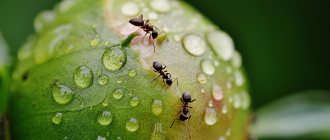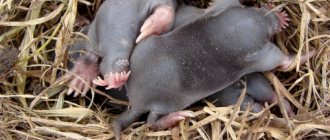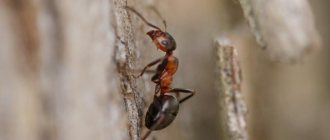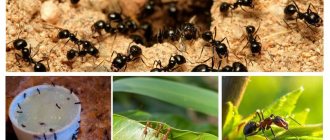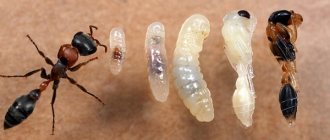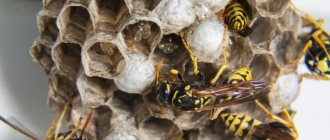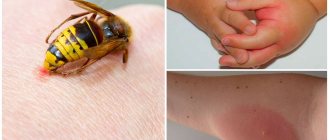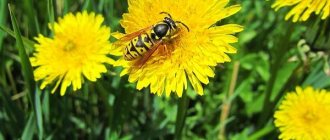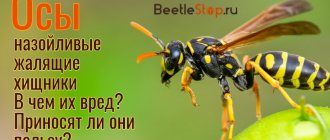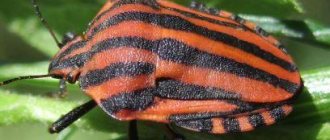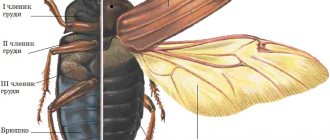The brown forest ant (Formica fusca) is the most common forest ant species, found in almost all temperate zones of Eurasia. Found in a variety of habitats (forests, meadows, steppes, mountains). The brown forest ant makes its nest in the soil, under stones, and in rotten wood. Mixed food. Families are usually small (from 500 to 2000 individuals).
Habitat
In the central zone of the European part of Russia, the brown forest ant is a typically forest species, living in deciduous and mixed forests, often with dense undergrowth. Its nests can also be found in hummocks in damp meadows, and occasionally in clearings and forest edges. In the steppe zone, the brown forest ant lives in forest islands, shady gardens and parks. Winters from November to January.
In the mountains of Europe and the Caucasus it lives in the forest belt, also entering the subalpine zone. In France it rises to maximum heights, in the Alps and Pyrenees it lives at altitudes from 1100 to 3000 m, on Mount Vitosha in Bulgaria - at altitudes from 700 to 1800 m, reaching maximum numbers in mixed forests.
In the basin of Lake Issyk-Kul, this ant was found in mesophytic meadows along the shore of the lake and at an altitude of 2200 m, where it is common in a wide variety of habitats. In the Tien Shan it is found in the upper part of the forest belt and mainly in subalpine meadows, descending below 2000 m only on the northern slopes. On Alai it rises to alpine meadows at an altitude of 3570 m.
Related article Northern wood ant (Formica aquilonia)
Methods for removing ants from the garden
Stores sell many products designed to exterminate pests. But for extermination in order to remove insects, you can use not only chemicals, but also other options.
Chemicals
After discovering ants, people try to exterminate ill-wishers using chemicals. But it’s not enough to know how to get rid of ants in your summer cottage; you also need to know the main components of the chemicals that kill the ants.
Chemicals
Anti-ant products contain 2 main components:
- Diazinon. It is a substance that kills insects from the inside. This component provides the opportunity to produce organic substances responsible for the nervous system of insects.
- Chlorpyrifos. This component enters the ant's body by air. This component is retained in the soil for 3 months, but it is effective against insects for only 2 months.
To bait ants, you need to choose chemicals containing such substances; this is the only way to get rid of garden pests for a long period. You can also eliminate ants mechanically; we will tell you below how to get rid of ants in your summer cottage mechanically.
Mechanical fight
Nature lovers are unlikely to want to completely kill an ant, but since they cause harm to plants in the garden, such people will try to eliminate not the inhabitants of the nest themselves, but the anthill itself.
This method is carried out using a huge flower pot or a special container is used. Place loose soil in the middle of the container or pot and cover with a layer of straw. Place the container near the anthill and after a while the inhabitants will leave the old nest and move to a new home. Now put the container in a plastic bag. The package is transferred to another place, but at a distance of at least 40 meters from the old anthill.
You have learned how to get rid of ants in your summer cottage using a mechanical method that does not harm the insects. Now we’ll tell you how to use the physical option for pest removal.
Physical methods
The physical method of removing ants is easy:
- First, heat the water to a boil, but it is better to use a decoction of tomato tops;
- Pour boiling water over the discovered anthill.
Thus, many insects die; this method must be applied several times in order to exterminate all the inhabitants. Instead of boiling water and a decoction of tops, you can use kerosene or hot coals from a burning fire.
Humane removal methods
For nature lovers, humane insect control options are ideal. In this case, the individuals do not die, but simply move to a new place. We will now tell you in detail how to get rid of ants in the garden and forget about their presence forever, using humane control options.
For this purpose you can try:
- Various strong odors. Ants react negatively to various strong odors. For this reason, in order for them to leave their home, after discovering an anthill, it is necessary to place carriers of such odors around it. Anise leaves, smoked herring heads, and sawdust are often used, which must be mixed with grated garlic. You can simply fill the anthill with kerosene.
- Wormwood and parsley. If you have wormwood or parsley growing in your garden, then you don’t have to worry about the appearance of ants. Ants also do not digest such plants and try to avoid placing their nests near them. It is recommended to plant garlic near fruit-bearing plants.
- Hemp oil. Ants have a negative attitude towards trees that are coated with hemp oil.
- You can use a trapping belt for insect pests.
This product protects plants not only from bugs and caterpillars, but also copes well with ants. - Grooves with water. Ants cannot swim; in order to prevent insects from entering the area with fruit and vegetable plants, you need to make a small ditch around the area and fill it with water. The width of such a groove should be approximately 3-5 cm. This distance is enough to prevent ants from getting to the plants.
- Yeast with sugar, water and honey. You need to find an anthill in the garden. Mix a handful of yeast with sugar, water and honey; the mixture should not be liquid, but in the form of porridge. We collect the resulting composition into match boxes and place them around the insects’ home.
In the garden, ants are not as harmful as in garden areas. We will now tell you how to get rid of ants in a summer cottage with a garden.
Proven methods of exterminating insects:
- you can scare away ants from plants in the garden and garden using a rag soaked in kerosene; it must be placed near the bushes of plants and trees;
- you can tie the plants with wool or cotton wool, which is soaked in a carbolic solution;
- install or secure containers with sweet liquid syrup, while greasing the necks with anise oil;
- if the plants do not grow, then most likely the ants have built a nest near the root system; to remove them, you need to treat the area with bleach or ordinary lime.
In these ways you can drive out ill-wishers.
Protecting the area from the appearance of ants
Knowing how to get rid of ants in the garden and forget about their presence forever, you can exterminate and drive away the insects, but this is much more difficult than preventing their appearance. If prevention has been carried out and the ants still enter the area, they can be easily expelled and exterminated.
The most effective ways:
- Salt. If an anthill is found, it must be sprinkled with salt; the salt must be scattered in the hottest places, that is, where clusters of ants are often observed. Due to the salt, the life of the ants will become unbearable, and they will move further away from the site.
- Laundry soap. To prepare such a solution, you need to add half a kilogram of soap, two tablespoons of carbolic acid and 10 tablespoons of kerosene to a bucket of water. Mix the mixture well. With the resulting composition, you need to water the anthill, the passages and exits from it. After several treatments, the insects will move to another place.
- Oregano and sulfur. Oregano must be crushed and mixed with sulfur. The proportion of the mixture is 1 to 2. Next, you need to find a cluster of ants, dig up the anthill and fill the dug area with the mixture.
- If there is a small concentration of ants, then they have just begun to equip their home. To remove them before it’s too late, you need to soak a sponge in a sugar solution, then place it on the anthill. When they stick to the sponge, you need to lift it and lower it into boiling water. It is advisable to repeat such actions until the pests are completely exterminated.
- Forced eviction is considered an effective way to exterminate ants from a site. Such an eviction is carried out simply. With the onset of darkness, all insects return to their home. At this time, you need to dig the anthill several times and place them together with the soil in a bucket, and take the bucket out of the area. Pour boiling water over the hole itself.
If you do not want to fight insects in the fruit area, it is better to plant tomatoes, parsley and other plants that emit strong aromas.
Lifestyle
The brown forest ant makes its nests in the soil, under stones, in rotten wood, under the bark of stumps. In damp places, nests are usually in hummocks. Brown forest ants are quite thermophilic and therefore avoid dark areas.
This species usually does not make external buildings. The species does not have a protected area and does not compete with other species of the genus. Families of brown wood ants are small (from 500 to 2000 individuals) and nests usually have one fertile queen, but large colonies can receive additional young queens. Brown forest ant workers are capable of associative learning.
Benefits and harms
In nature, there are no only harmful or only beneficial insects. There are situations in which one or another species can either be useful for a person, or cause him a lot of problems.
The forest ant is listed in the Red Book as the main protector of forests from pests. By eating a species of harmful insect that has begun to actively reproduce, forest ants stop its further spread. In addition, these tireless workers carefully loosen the soil, saturating it with oxygen. They also play an important role in the food chain, being the main food for many forest birds: wood grouse, woodpeckers, tits. The acid secreted by ants is widely used in medicine: drugs for rheumatism, joint pain, and tuberculosis are produced on its basis.
And only for summer residents , red ants are a real disaster : the diet of these individuals is mostly honeydew (sweet secretions of aphids). Ants protect aphids, breed them in huge quantities and even take them with them to the anthill for the winter. Aphids cause enormous damage to gardens and vegetable gardens, destroying all vegetation. Therefore, the appearance of these forest guests in summer cottages causes real panic. Black garden ant. This insect undoubtedly does more harm than good. When settling in gardens, they happily eat the fruits of fruit trees and suck nectar from flowers, damaging them. And just like red ants, they breed herds of aphids.
The harvester ant is of considerable benefit in the virgin steppes, where it actively spreads plant seeds. But if these insects live near the currents where grain is threshed, this threatens a serious disaster for the harvest.
The carpenter ant is useful because it destroys pests, insect corpses, as well as larvae living under the bark of trees. But woe is it if woodworms have chosen for their settlement prepared boards stacked in a barn or in the courtyard of a residential building. By grinding down the wood from the inside and turning it into dust, they make the building material completely unsuitable for use. Woodworms can cause a lot of problems for humans if they settle directly in a living space. Usually in houses furniture, doors, and wooden baseboards suffer from their encroachments.
Ants bring a lot of trouble to humans only when they settle in close proximity to him. Nature would hardly live and flourish without these little hard workers. You need to remember this when you want to stir up and destroy an anthill just for fun.
Architectural structure of the nest
An anthill in the forest is visible from afar. The house of these insects reaches 2 m in height. But this is only the top floor, where forest red ants live in the warm season. The anthill continues up to 3 m deep. There are chambers for storing supplies for the winter and sleeping places.
Anthill of red ants
To build the upper floor, ants use twigs, sticks, leaves, moss, needles, and soil. Initially, it seems that everything is scattered randomly, but this is not so. The conical shape of the house protects the chamber from getting wet during heavy rains, and also ensures the retention of moisture inside during dry periods.
Interesting!
An ordinary ant of a large family regularly cleans the inside of the home. Removes trash, egg shells, and food debris. All this is also used in the construction of the outer part of the architectural structure.
Ants overwinter in their home. The forest anthill is closed for the winter. Entrances and exits are clogged. Ants move into the lower chambers gradually as cold weather sets in. In the harsh frosty winter, they occupy the lowest floors and hibernate until better times. In warm winter, life inside does not stop, only the process of laying eggs is suspended.
Description
The black garden ant is a medium-sized insect 3-6 mm long. Females are slightly larger than males. The length of the uterus reaches 7-9 mm. Color black-brown. The body is densely covered with adjacent hairs. There are numerous erect hairs on the tibia and bases of the antennae. The eyes are complex. All limbs are crowned with 2 claws with hooks, with the help of which the insect climbs walls and digs the ground.
Life cycle
Winged males and future queens emerge from the eggs in the spring. At the beginning of summer, most often after rain, they leave the anthill en masse and fly long distances. Having found another anthill, the female sits on the ground. Here she is surrounded by several males at once and mate with her in turn, after which they soon die.
The fertilized female bites off her wings and creates a new family, or returns to her nest. The queen is capable of laying up to 10 eggs per day. The larva develops for 2 weeks, during which time it molts 3-4 times and turns into a nymph, which forms a cocoon around itself. The adult emerges from the cocoon after 6 weeks. At first, the body of young ants is soft, the chitinous cover gradually hardens. During season 1, the colony produces individuals of only one sex, which eliminates inbreeding.
